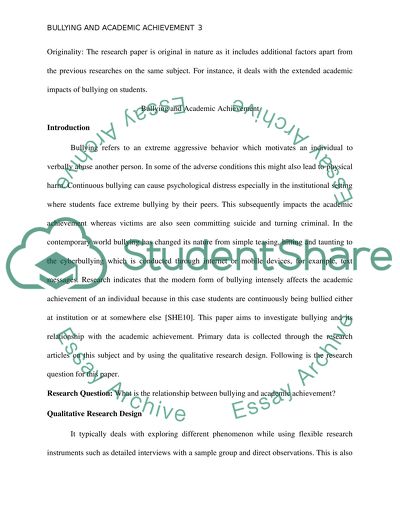Cite this document
(“Bullying and Academic Achievement Research Paper”, n.d.)
Retrieved from https://studentshare.org/psychology/1492203-bullying-and-academic-achievement
Retrieved from https://studentshare.org/psychology/1492203-bullying-and-academic-achievement
(Bullying and Academic Achievement Research Paper)
https://studentshare.org/psychology/1492203-bullying-and-academic-achievement.
https://studentshare.org/psychology/1492203-bullying-and-academic-achievement.
“Bullying and Academic Achievement Research Paper”, n.d. https://studentshare.org/psychology/1492203-bullying-and-academic-achievement.


